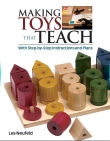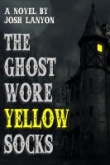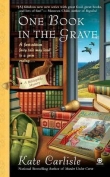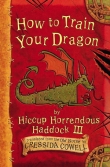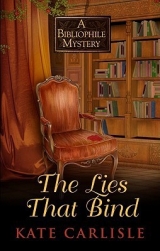
Текст книги "The Lies That Bind"
Автор книги: Kate Carlisle
сообщить о нарушении
Текущая страница: 18 (всего у книги 19 страниц)
Brooklyn’s Glossary
PARTS OF THE BOOK
Boards—Usually made of stiff cardboard (or, occasionally, wood) and covered in fabric (cloth, paper, leather).
Covering—Cloth, paper, or leather fabric used to cover the boards.
Endband—Small ornamental band of cloth glued at the top and bottom of the inside of the spine, used to give a polished finish to the book (also called a headband or tailband).
Endsheets—The first and last sheets of the textblock that are pasted to the inside of the cover board; the pastedown.
Flyleaf—First one or two blank pages of a book, not pasted to the inside of the cover board. These pages protect the inner pages of the textblock.
Foredge—The front edge of the textblock opposite the spine edge. The edge is usually smooth but may, on occasion, be rough, or deckled. The edge may be gilded or, in rare instances, painted. Fore-edge painting gained popularity in the seventeenth century when religious or pastoral scenes were painted onto the foredge to embellish the book’s content. The painting was invisible until the pages were fanned in a certain direction.
Grain—The direction in which the fibers are aligned in the paper. When grain direction runs parallel to the spine, the paper folds will be straighter and stronger and the pages will lie flat.
Head—The top of the book.
Hinge—Inside the book cover, this is the thin, flexible line where the pastedown and flyleaf meet and is the most easily damaged part of the book.
Joint—Outside the book at the point between the edge of the spine and the hard cover that corresponds with the inside hinge. Its flexibility allows the book to open and close.
Linen tapes—Strips of linen sewn onto the signatures and used to hold the signatures together. The tapes run perpendicular across the spine edge and are pasted down between the cover boards and the endsheets.
Pastedown—See Endsheets.
Signature—A gathering of papers that are folded and sewn to make up the textblock or the pages of a book.
Spine—The back edge of a book, where the pages are sewn and glued.
Swell—Term that indicates the way paper lies after folding. Generally, the folded edges of a stack of paper will be thicker than the outer edges. Consolidating and rounding the textblock will reduce swell and allow the book to lie flat and even.
Tail—The bottom of the book, where it rests when shelved upright.
Textblock—The sections of paper sheets or signatures sewn through the fold onto linen tapes.
OTHER BOOKBINDING TERMS
Conservation—The care and preservation of books, often at a total resource level—that is, a library or the archives of an institution. Conservators will take into consideration the damaging effects of age, use, and environment (including light, heat, humidity, and other natural enemies of paper, cloth, and leather) and strive to apply their knowledge of bookbinding, restoration, chemistry, and technology to the restoration and protection of the collection under their care.
Consolidation—Once the textblock is sewn and pressed, the spine should be consolidated (that is, compressed, in a press) and coated with adhesive (PVA). When consolidation is completed (the glue is dry), the texblock is rounded by pushing and pounding against the sections, first one side, then the other, with a bookbinders hammer.
Kettle—The kettle actually refers to the first and last holes (usually found at each end of the page) where the stitching together of the signature pages begins and ends (or reverses back to the beginning). The kettle stitch refers to the stitch used to sew one signature page to the next, linking the next page to the previous one, as well as binding the linen tapes to the textblock.
Restoration—The process of returning a book to as close to its original condition as possible. A book restoration specialist will pay close attention to the materials and techniques in use at the time the book was first made, and will attempt to follow those guidelines in terms of resewing, rebinding, and reconstructing the book. This is in contrast to book repair, which does not encompass restoration or conservation but focuses strictly on bringing a book back to its basic functional level (which may or may not involve duct tape).
Rounding—The process of hammering or manipulating the textblock spine into a curved shape after gluing and before backing. Rounding diminishes the effect of swelling and helps to keep a book standing upright on a shelf.
SOME BASIC BOOKMAKING TOOLS
Awl—Used for punching sewing holes in folded paper.
Bone folder—A tool used for making sharp creases in folded paper and smoothing out surfaces that have been glued. It is generally made of bone and is shaped like a wooden tongue depressor.
Bookbinders hammer—Used for rounding the spine of a book, a bookbinders hammer is smaller and lighter than a carpenter’s hammer, with a large, flat, polished pounding surface.
Book press—There are various types. One small type of wood press can be used to hold the textblock while gluing. With a newly finished book, a large brass press will help strengthen, straighten, and fuse the book together.
Punching jig or Punching cradle—A V-shaped piece of equipment with a slim opening at the bottom for cradling signatures in order to punch holes in them.
PVA (polyvinyl acetate)—Preferred adhesive in bookbinding, it is liquid and flexible and results in a permanent bond. It dries colorless and is pH neutral, so it is recommended for archival work.
Turn the page for a sneak peek at Brooklyn Wainwright’s next mystery adventure in
Murder Under Cover
the fourth Bibliophile Mystery, available from Obsidian in May 2011.
“You’re having sex!” my best friend, Robin, cried as soon as I opened the door. “I mean, not currently, thank God, but recently. Oh, I’m so happy for you!”
“Say it a little louder, why don’t you?” I yanked her into my apartment and quickly shut the door behind her. “I don’t think they heard you in Petaluma.”
She dropped her bags on my worktable and pulled me into a hug. “Your closest neighbors are two gay guys. Do you really think they care?”
“It’s nobody’s business,” I grumbled. “I’m not even going to ask how you can tell.”
“It’s a gift.” She patted my cheek. “Besides, just look at you. You’re glowing.”
“Don’t be ridiculous,” I said, feeling my cheeks warm up. So maybe she was right—maybe I was glowing. But did she have to point it out to the world?
Robin Tully had been my BFF for years, ever since we were eight years old and our parents joined the same spiritual commune in the hills of Sonoma County. We first bonded over Barbie dolls, Johnny Depp, and a mutual disgust of dirt. Since then, all that dirt had transformed itself into the upscale town of Dharma, a wine-country destination spot for Bay Area foodies. But back in the day, it was backwoods enough to make two fastidious little girls go berserk.
Robin grinned, amused by my reaction.Then she scooped up her bags from the table. “I brought wine and presents.”
“I ordered pizza,” I said, leading the way down the short hall to my living area.
“I’d kill for pizza.”
“No need. I’ll share.” I pulled two wineglasses from the kitchen shelf and set them on the smooth wood surface of the bar that separated my kitchen from the living room. “I missed you a lot. How was India?”
“India was exotic and wonderful and smoggy, and I missed you, too.” She pulled a bottle of wine from one of her bags and handed it to me to open. “And I missed showers. And ice cream. And hamburgers.”
“The pizza’s got sausage and pepperoni.”
“Oh, God, meat.” She closed her eyes and sighed. “It sounds like heaven.”
“I have ice cream, too.”
“I love you—have I told you lately?”
With a laugh, I poured the wine and handed her the glass. “Welcome home.”
“Thanks.” We clinked glasses, and she took a good long drink. “You have no idea how happy I am to be back.”
The doorbell rang, and I ran to pay the pizza delivery-man. After piling pizza and salad onto plates and pouring more wine, we sat in the living room to eat.
Besides Robin’s work as a sculptor, she owned a small travel company that specialized in tours of sacred destinations all over the world. Stone circles, pyramids, Gothic cathedrals, harmonic power centers. Her tours catered to the adventurous seeker of esoteric knowledge who had tons of cash to throw her way. She had just returned from a three-week tour of India.
So for three long weeks I’d been gnashing my teeth, unable to share my exciting news—specifically, the news about me and my mysterious British boyfriend—with my closest friend. And Robin had guessed it the very first second she saw me. I supposed that’s what the whole BFF thing was all about.
We opened another bottle of wine as she regaled me with the highlights of her India trip and I filled her in on all the news about me and Derek Stone, the hunky British security expert I’d met a few months back during a murder investigation. Yes, we’d done the deed, as she’d shouted to the world earlier. And yes, he was opening a San Francisco branch of Stone Security. So yes, he was currently staying with me, but no, he wasn’t home just now. He was currently flying back from Kuala Lumpur where he’d provided security for an installation of priceless artwork from the Louvre.
And yes, I’d been threatened by another vicious killer. Robin had been packing to leave for India at the time and wasn’t around to hear the entire story, so I filled her in on all the gory details. The killer was safely tucked away in jail now. And that was my last three weeks in a nutshell.
As we cleared the dishes, I figured it was time to ask Robin the burning question I’d avoided long enough.
“So, did you see your mother?” I asked cautiously.
Robin scowled. “Yes, and she’s as annoying as ever.”
That was no big surprise. She and her mother, Shiva Quinn, had always had issues.
Shiva’s real name was Myra Tully, and she had been raised by missionaries. Suffice to say, Myra had a real savior complex from the get-go. In the 1970s, Myra had accompanied the Beatles to India to see Maharishi Mahesh Yogi. While there, she changed her name to Shiva Quinn. No one was sure where Quinn came from. As for Shiva, Robin always thought it was telling that her mother had named herself after the supreme god of Hinduism.
When Robin was really irritated with Shiva, she’d call her Myra.
It didn’t help that her mother was tall, glamorous, and model thin. She was sophisticated and interesting, and everyone loved to be around her. Her missionary upbringing had given her a sense of awareness of the world and its problems, which led her to become the spokesperson for a humanitarian organization called Feed the World.
By the time Robin was ten years old, her mother was traveling constantly, returning home every few months for only a day or so. But that was okay with me, because when Shiva left the commune, Robin would stay at my house. We had a slumber party every night. I would’ve been happy if Shiva stayed away permanently, but I could never have said that to Robin.
“How long did you visit with her?” I asked as I started the dishwasher.
“Three excruciating days.” Robin laughed dryly. “She’s such a drama queen. She couldn’t settle in London or Paris. No, she had to go live in Varanasi. I swear she thinks she’s Mother Teresa in Prada. Never mind. I promised myself I wouldn’t bitch about her, but it’s always so tempting. Anyway, Varanasi itself was awesome. I’ll probably return with a tour group sometime. I saw the Monkey Temple and walked for hours along the ghats overlooking the Ganges. It was amazing. I have pictures. I’ll send you the link.”
“Great. It sounds fascinating.”
“It was, and my mother sent you something.”
“Me?”
“Yes.” She held up one of the bags she’d brought with her. “Do you want to see it?”
“Of course I do.”
“Let’s go to your workroom.”
My curiosity piqued, I followed her to the front room of my loft where I did my bookbinding work. I pulled two tall chairs close together, and we sat at my worktable. Robin turned the bag on its side and slid the contents out onto the surface. It was a worn leather satchel.
“It’s . . . a bag,” I said. “How thoughtful.”
Robin chuckled. “Wait for it. You know my mother. We must build the suspense.”
She unbuckled the satchel and pulled out a wadded old swath of Indian-print material.
“Um, is it a scarf?” I said, touching the faded, scratchy woven fabric. Once, it might’ve been dark green with burgundy and orange swirls of paisley, but it was so old and thin now, I could almost see through it. Colorful beads, tiny brass animal shapes, and bits of mirrored glass were woven into the fabric. “Is this really for me?”
“Hell, no.” Robin wrinkled her nose at the matted material. “That’s just to protect what’s inside. It’s my mother’s idea of wrapping paper, I guess.”
“Ah.”
“But do you know, she actually thought I would love to wear it? She just doesn’t get me. Never did.” Resigned, she flicked one of the silvery beads.
“No, she never did.” The threadbare fabric had an ethnic style that was intriguing, but I knew Robin wouldn’t be caught dead wearing it. I fingered the cloth again, then said carefully, “Maybe your mom’s been in India a little too long.”
“You think?” She shook her head as she gingerly unwrapped the cloth. “Okay, get ready.” She pulled the last of the fabric away. “This is for you.”
“Oh, my God,” I whispered.
It was a book. The most exquisite jeweled book I’d ever seen. And possibly the oldest. It was large, about twelve inches tall by nine inches wide, and maybe an inch and a half thick. I suppressed the urge to whip out my metal ruler.
The solid red leather binding was decorated with heavy gilding and precious gems. Chunky red teardrop-shaped rubies were affixed to each corner. Small round sapphires lined the circular center where a gilded peacock spread its tail feathers. Tiny diamonds, emeralds and rubies were encrusted into the feathers. The borders of the book were thickly gilded, but some of the gold had flaked off, and the red leather was rubbed and faded in spots.
“Peacocks are the national bird of India,” Robin said. “Did you know that?”
“I had no idea.” I picked up the book and studied the fore-edge. With the book closed, the pages were deckled, or uneven. I could tell without opening the book that the paper itself was thick vellum.
I checked the spine. It read Vatsyayana. I looked up at Robin. “What is this?”
“Open it and find out.”
“I’m almost afraid.” But I opened the front cover and turned to the title page. “You’re kidding.”
“Nope.”
“The Kama Sutra?”
“Yes.” Robin grinned. “Mommy dearest wants it refurbished and evaluated.”
My eyes widened. “I can take it apart?”
She laughed. “I guess, but you don’t have to sound so excited about it.”
“Are you serious? I live for that.”
“Good times.” She sipped her wine.
“It is for me.” I stroked the spine, counting the ribs. “But I wonder why she wants me to do the work.”
“Apparently, Abraham visited her a few years ago and talked you up.”
“Really?” I smiled. Abraham had been my bookbinding teacher for years. I turned another page slowly, unwilling to disturb the binding too much. The book was at least three hundred years old, and I was shocked to see that it was written in English. But then, the English had ruled India for centuries, so I supposed that made sense.
I turned to a page near the middle of the book and saw an illustration of a couple having sex in a most fascinating style. I closed it quickly. Then I couldn’t help but sneak another peek.
“Wow, it’s all hand painted,” I said after clearing my throat. “Isn’t that interesting?”
“Yeah, it’s all about the strokes. Paint strokes, I mean. Beautiful.”
We both began to giggle. It must’ve been the wine.
Robin let out a deep breath. “Well, hey, speaking of sex . . .”
“Were we?”
She laughed. “Well, sort of.” She waved her hands as if to get rid of that thought. “And I’m not talking about the sex you’re having. It’s about me. I met a man.”
“Oh.” That got my attention. “In India?”
“No, here in San Francisco, on the way home from the airport. I was starving, so I stopped at Kasa to get some food to go. He was waiting for his order, and we struck up a conversation.”
“You went to Kasa after coming back from India?”
She laughed again. Kasa was part of a small local chain of good Indian restaurants. “I still had a taste for the food. But that’s not important just now.”
“You’re right. So who’s this guy?”
“He’s . . .” She looked baffled. “He’s . . . wonderful.”
“Okay,” I said slowly. “What’s his name?”
“Michael.” She smiled softly. “He’s an engineer—can you believe it? He was born in Ukraine, but he’s lived here forever. His family calls him Mischa. Isn’t that cute? He’s great. Really handsome and funny. And smart.”
“You found all that out while waiting for to-go food?”
“We ended up grabbing a table and eating there together. It was a great conversation, and we found out we actually have a lot of stuff in common. He’s wonderful, you’ll see. We’re going out tomorrow night.”
I stared at her in surprise. “Oh, no, you’re blushing. You never blush. You really like him.”
“Give me a break.” She rolled her eyes. “I blush sometimes. But yeah, I like him.”
Disconcerted, I glanced down at the Kama Sutra and decided that further inspection could wait. I closed the book and looked up at Robin. “Okay, he sounds great, but I have to ask why you’re seeing Mr. Wonderful when you’re in love with my brother.”
Her lips twisted into a frown. “Austin hasn’t made any moves in my direction lately.”
I frowned, too. “Well, it’s not like you live in the same neighborhood anymore. He’s going to have to make an effort to come after you.”
“Yes, he is,” she said wistfully. “Look, he traveled and partied for years, and now he’s ready to settle down back home in Dharma and run the winery. But I’m not ready to do that, yet. Not that he’s asked me to.”
I sighed. “I don’t want my brother to blow this.”
“I don’t want him to, either. But I’m not going to sit at home waiting for the phone to ring, either.”
She looked like she could have used a hug so I jumped off the chair and wrapped my arms around her. “You know I love you, no matter what happens. So for now, I’ll just hope you have a good time with Mr. Wonderful.”
“Yoo-hoo!”
We both jolted in surprise. I turned and saw my neighbors Jeremy and Sergio poking their heads through my open door. I guess I hadn’t locked it earlier.
“Hi, guys,” I said. “Come on in. You remember Robin, right?”
“Of course,” Jeremy said, waving both of his hands at us.
Sergio gave me a hug, then said, “Hi, Robin.”
“We’re sorry to bug you,” Jeremy said, pacing around my workroom, staring at the shelves. “But I’m preparing for my performance art debut at the Castro Street Fair, and I’m hunting for accessories. Do you have a boa or any girlie hats or big jewelry?”
“Big jewelry isn’t really my style,” I said, “but I probably have a hat you could use.”
“I have lots of pretty things at home,” Robin said.
“Your stuff is probably too nice for what he wants,” Sergio said. Then he whispered, “He’s presenting an homage to the homeless.”
“Yeah, the tackier, the better,” Jeremy said. “Ooh, what’s this?” He grabbed the funky Indian scarf and wrapped it around his neck.
“It’s yours if you want it,” Robin said.
“I love it. It’s so scruffy.”
“I have other stuff you can look at,” I said.
“No, this is perfect. Shabby but colorful.” Jeremy scurried over to the small mirror hanging near the front door and tossed the length of the scarf back and forth and over his head. “I love the sparkly beads. It’s kind of me, don’t you think?”
“Yes, it’s you,” Robin insisted. “Take it. I’ll never wear it. My mother is insane to think I would.”
“Would you guys like a glass of wine?” I asked.
The men exchanged a look; then Jeremy shrugged. “If you insist.”
“I’ll get the wine,” Robin said, laughing. “You show them your sexy new book.”
“You have a sexy book?” Sergio said, moving closer to the worktable. He was fascinated with my bookbinding work. “Is this it?” He touched the spine of the Kama Sutra.
“Yes, and wait till you see it,” I said, excited all over again. I opened the book and turned to the page Robin and I had been peeking at earlier.
Jeremy began to squeal and slapped my arm. “You naughty girl.”
“This is fantastic,” Sergio said in awe as he carefully touched the outer edge of the book. “Maybe I’ll take that bookbinding class you teach after all.”
The following night, Derek returned from his Kuala Lumpur trip. I made pasta with a creamy tomato-vodka sauce, and we drank an Etude pinot noir I’d been saving for a special occasion. Our relationship was new enough that Derek coming to stay at my house definitely qualified as a special occasion.
After dinner, we snuggled on the couch. In my wildest imagination, I never would’ve used the word snuggle in regard to the ruggedly masculine Derek Stone. But there we were, snuggled. And I felt completely satisfied with life.
Of course, the next thing I knew, Derek was sound asleep. Jet lag had hit him hard. I dragged him off to bed where he continued to sleep like a dead man.
It was five o’clock in the morning when the pounding began.
“What the hell is that?” Derek muttered.
“I don’t know,” I said, sounding whiny as I punched my pillow. Were they cleaning the streets? The pounding continued, so I finally tossed the covers back, sat up, and mumbled, “I hope it’s not the little kids that just moved in down the hall. That won’t make for good neighborly relations. I’d better go find out.”
I grabbed my short robe and threw it on, then stood on wobbly legs as the pounding grew louder. It wasn’t coming from outside, I realized. There was someone knocking at my front door.
Then I heard the screaming.
Derek jumped out of bed. “Stay here.”
Ignoring his command, I raced after him down the hall, through the living room and out to the workshop. I skidded to a halt behind him as he threw the door open.
It was Robin and she continued to scream as tears rolled down her cheeks. She was covered in blood.

